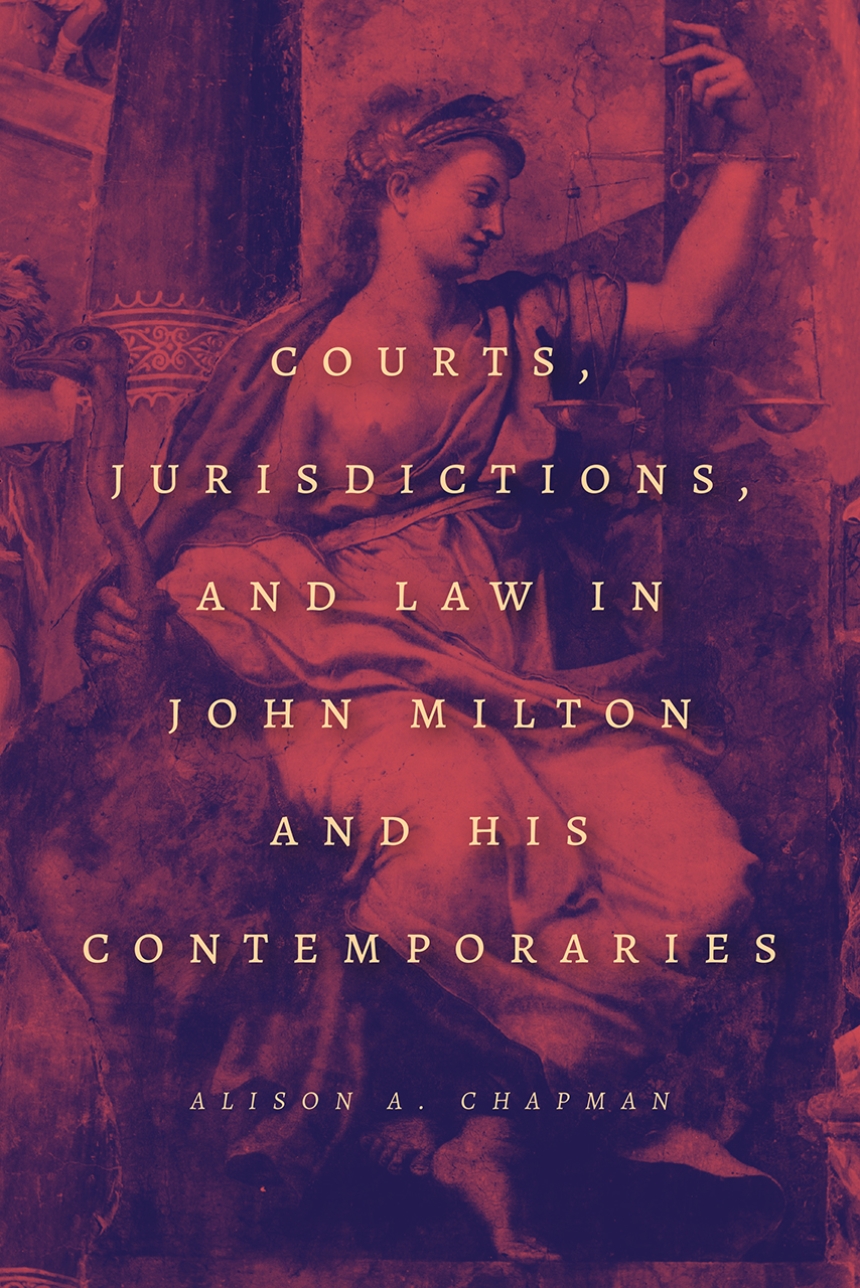Courts, Jurisdictions, and Law in John Milton and His Contemporaries
9780226729299
9780226729152
9780226729329
Courts, Jurisdictions, and Law in John Milton and His Contemporaries
John Milton is widely known as the poet of liberty and freedom. But his commitment to justice has been often overlooked. As Alison A. Chapman shows, Milton’s many prose works are saturated in legal ways of thinking, and he also actively shifts between citing Roman, common, and ecclesiastical law to best suit his purpose in any given text. This book provides literary scholars with a working knowledge of the multiple, jostling, real-world legal systems in conflict in seventeenth-century England and brings to light Milton’s use of the various legal systems and vocabularies of the time—natural versus positive law, for example—and the differences between them.
Surveying Milton’s early pamphlets, divorce tracts, late political tracts, and major prose works in comparison with the writings and cases of some of Milton’s contemporaries—including George Herbert, John Donne, Ben Jonson, and John Bunyan—Chapman reveals the variety and nuance in Milton’s juridical toolkit and his subtle use of competing legal traditions in pursuit of justice.
Surveying Milton’s early pamphlets, divorce tracts, late political tracts, and major prose works in comparison with the writings and cases of some of Milton’s contemporaries—including George Herbert, John Donne, Ben Jonson, and John Bunyan—Chapman reveals the variety and nuance in Milton’s juridical toolkit and his subtle use of competing legal traditions in pursuit of justice.
216 pages | 6 x 9 | © 2020
History: British and Irish History
Law and Legal Studies: Legal History
Literature and Literary Criticism: British and Irish Literature
Reviews
Table of Contents
A Note on Texts
List of Abbreviations
Preface: Making Sense of Many Laws
List of Abbreviations
Preface: Making Sense of Many Laws
Chapter 1: Introduction
Chapter 2: Defending One’s Good Name: Free Speech in the Early Prose
Chapter 3: Monstrous Books: Areopagitica and the Problem of Libel
Chapter 4: Civil Law and Equity in the Divorce Tracts
Chapter 5: Defending Pro Se Defensio
Chapter 6: The Tithes of War: Paying God Back in Paradise Lost
Chapter 7: “Justice in Thir Own Hands”: Local Courts in the Late Prose
Afterword: Justice in the Columbia Manuscript
Acknowledgments
Bibliography
Index
Acknowledgments
Bibliography
Index
